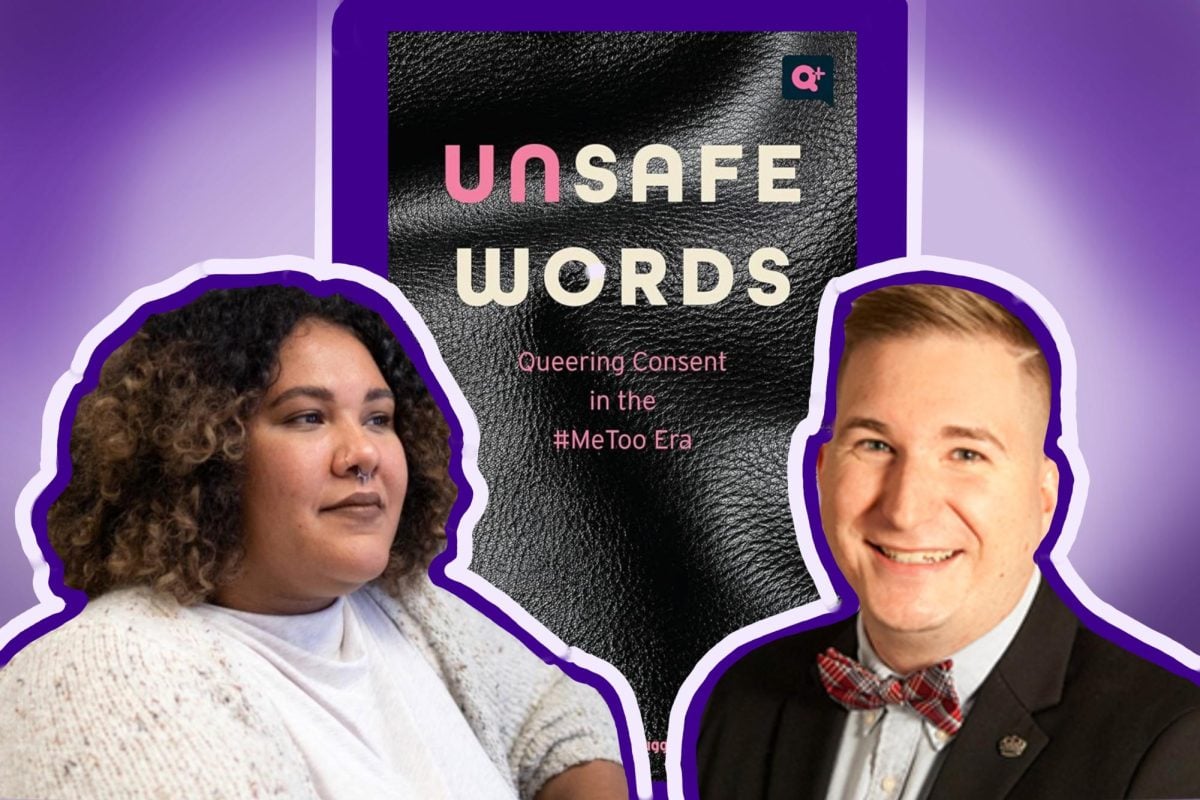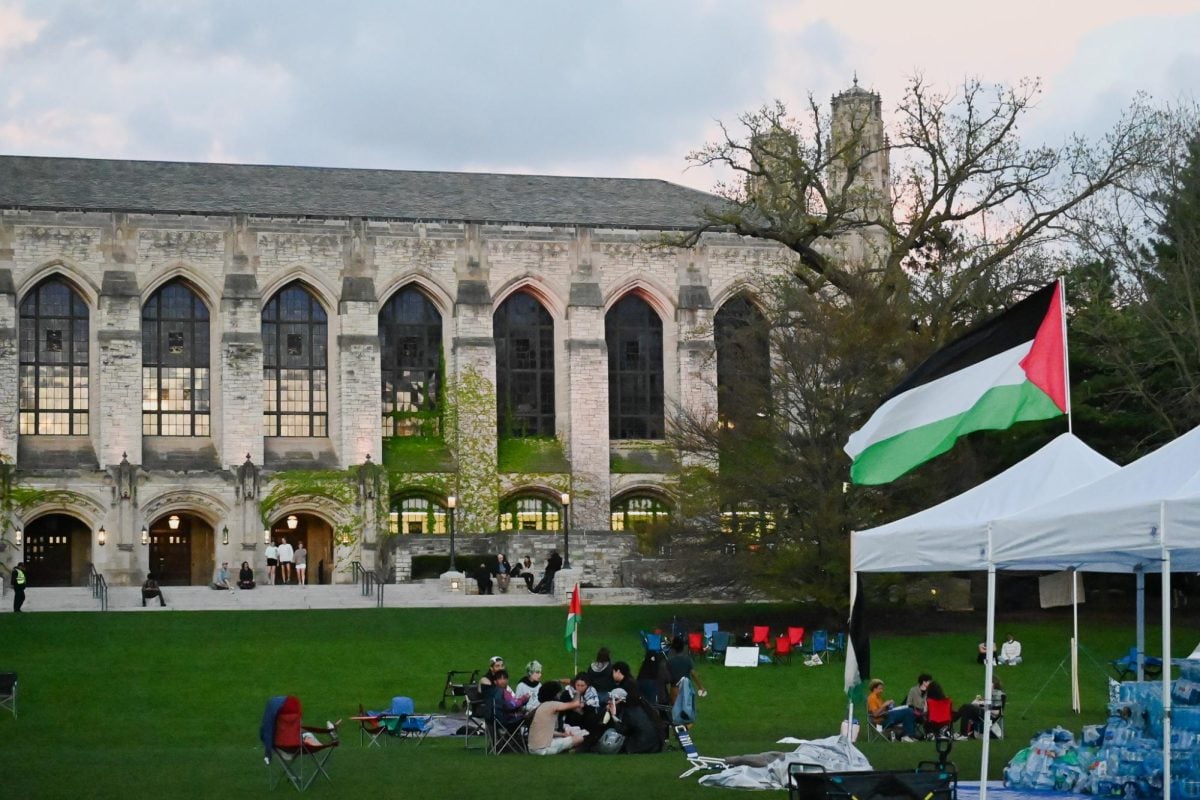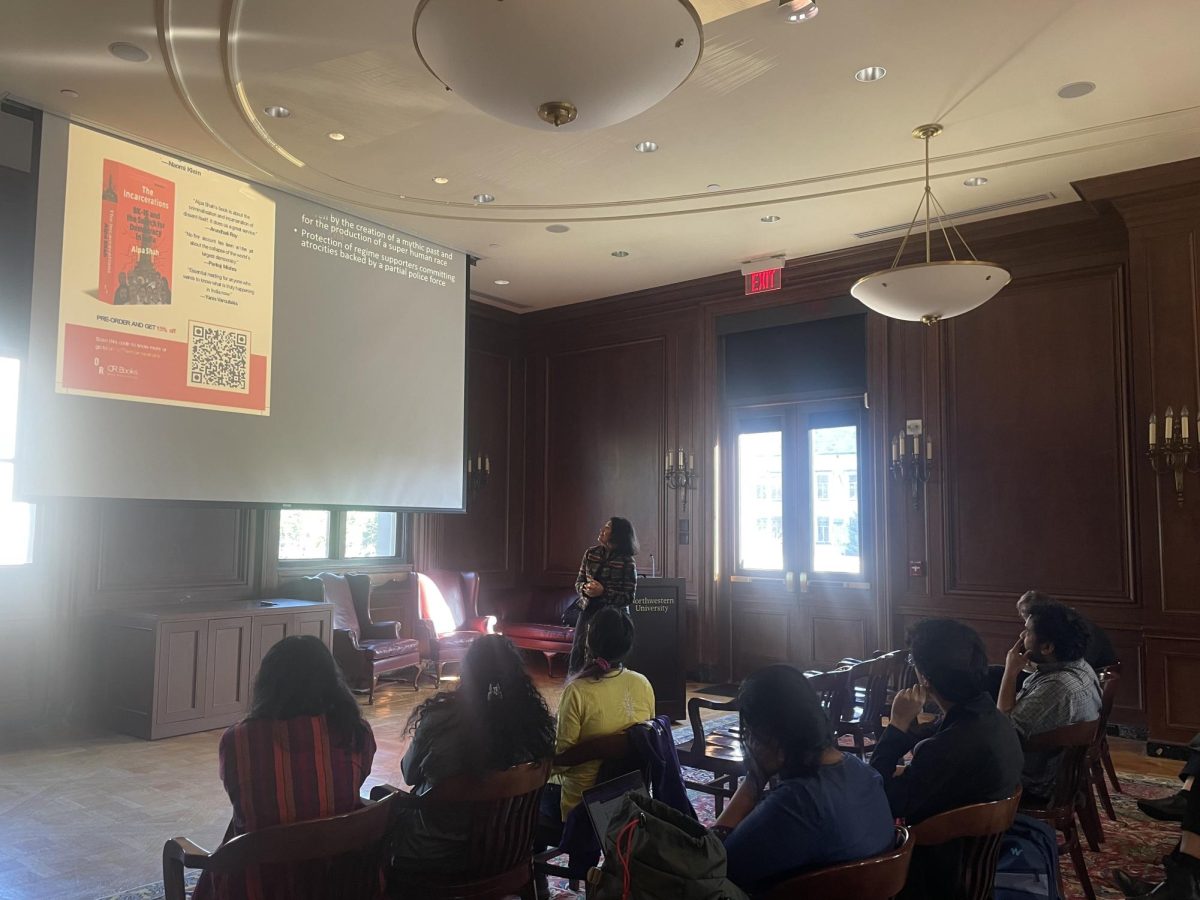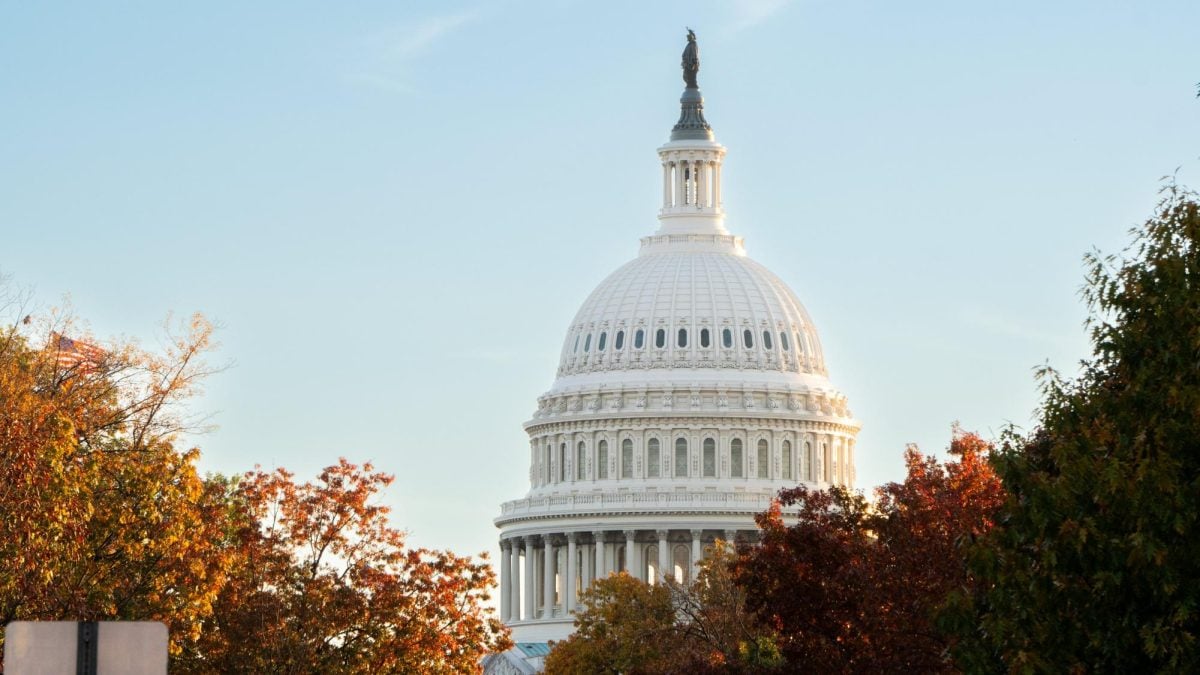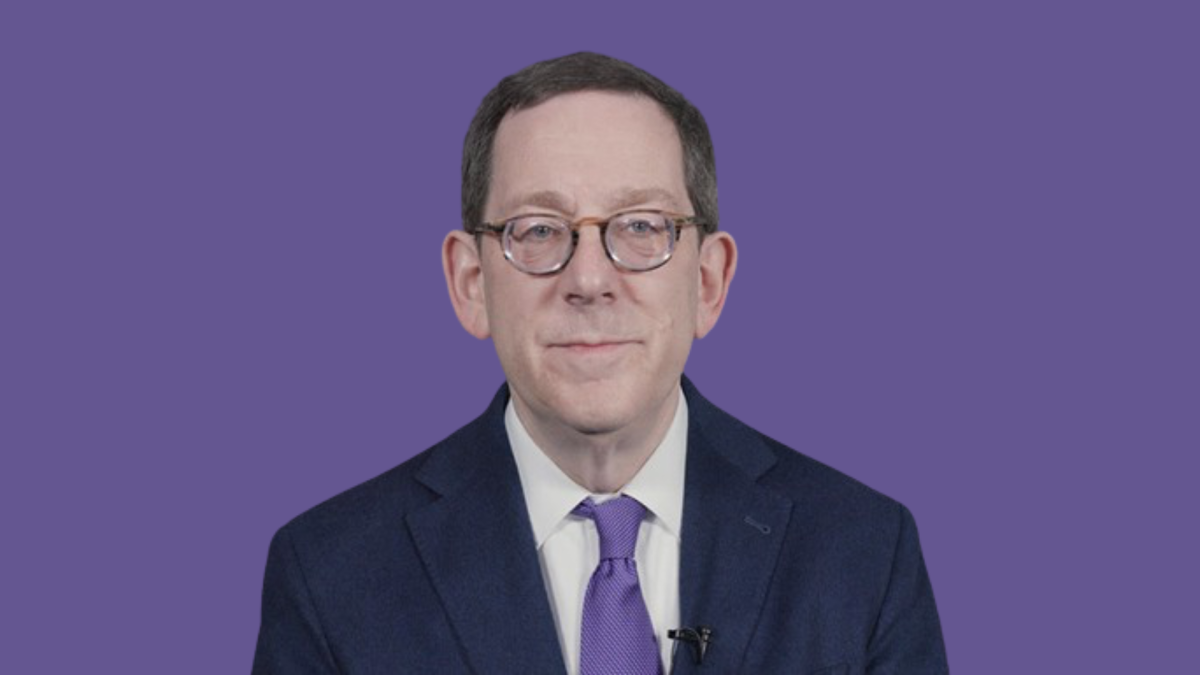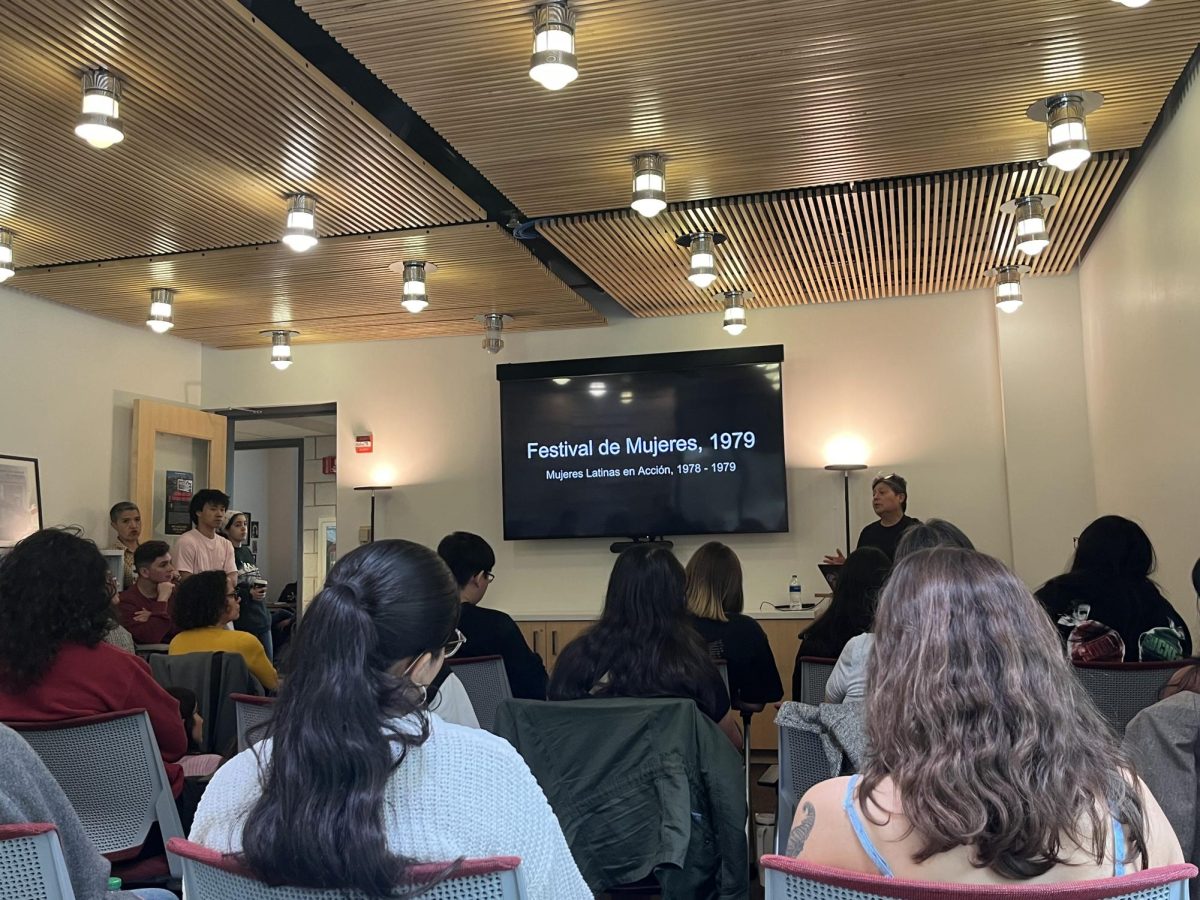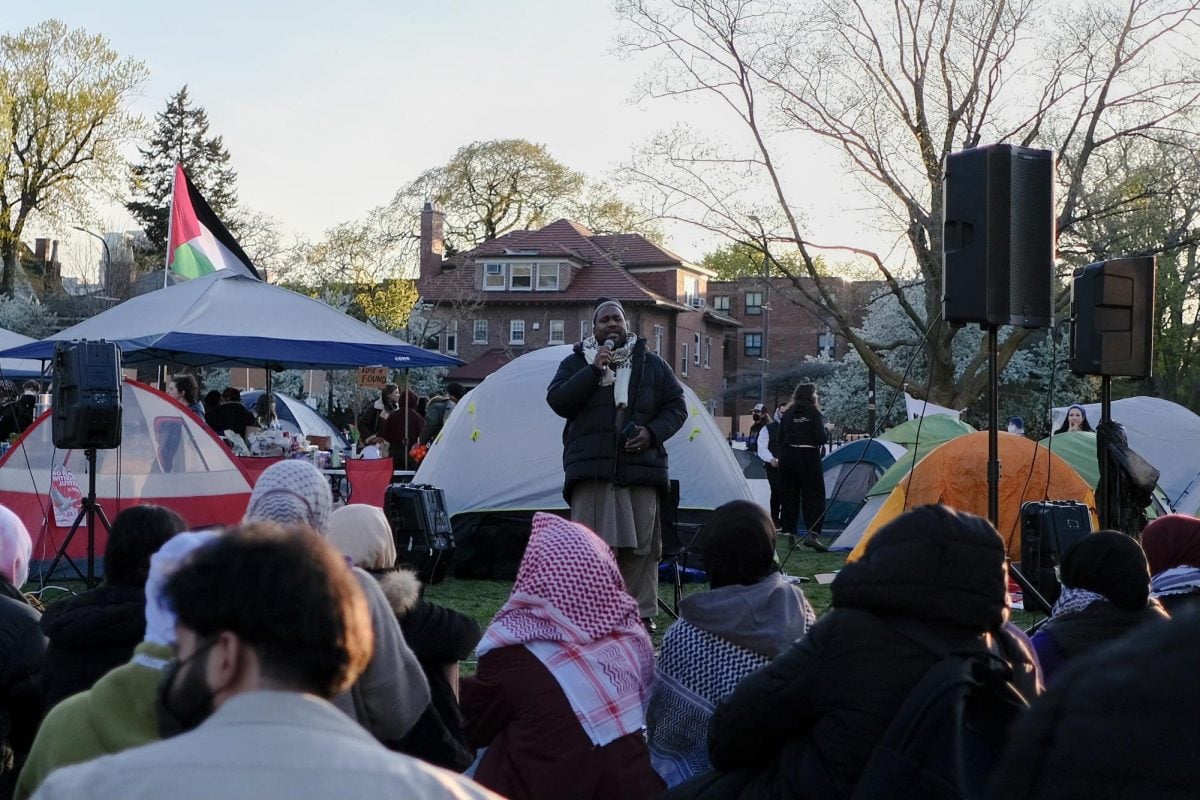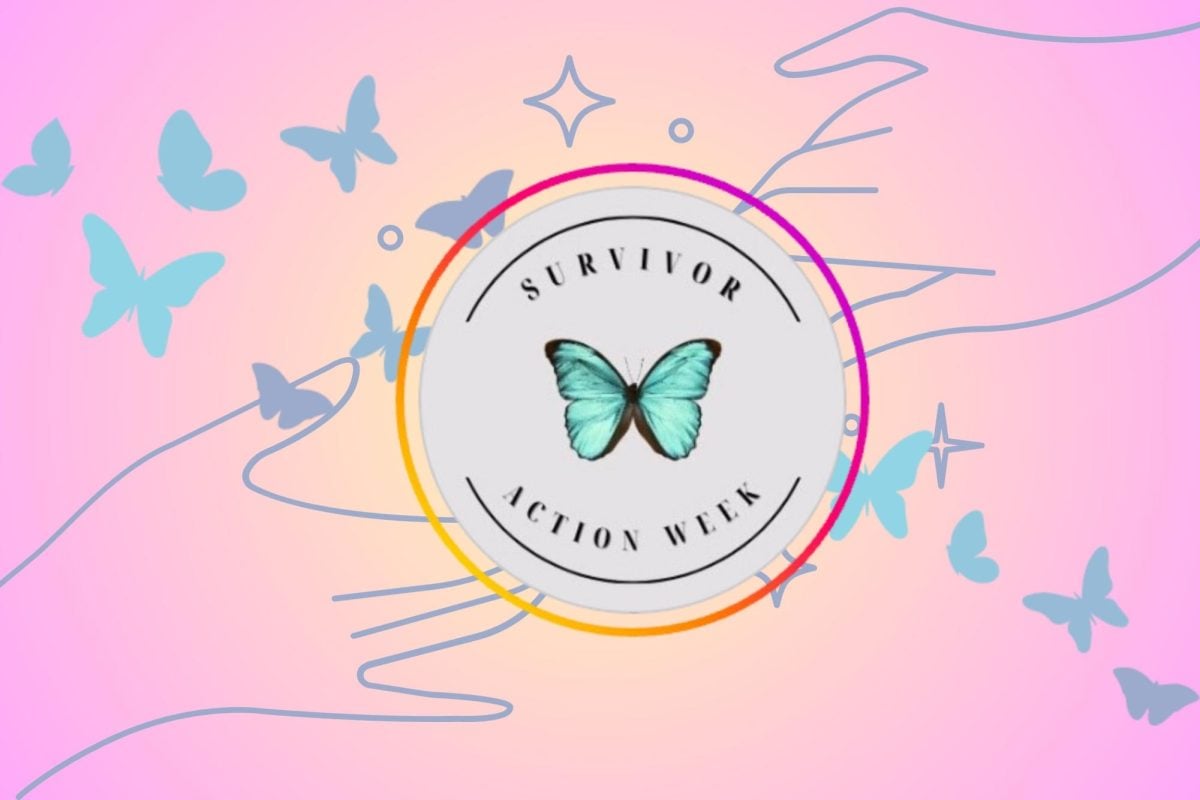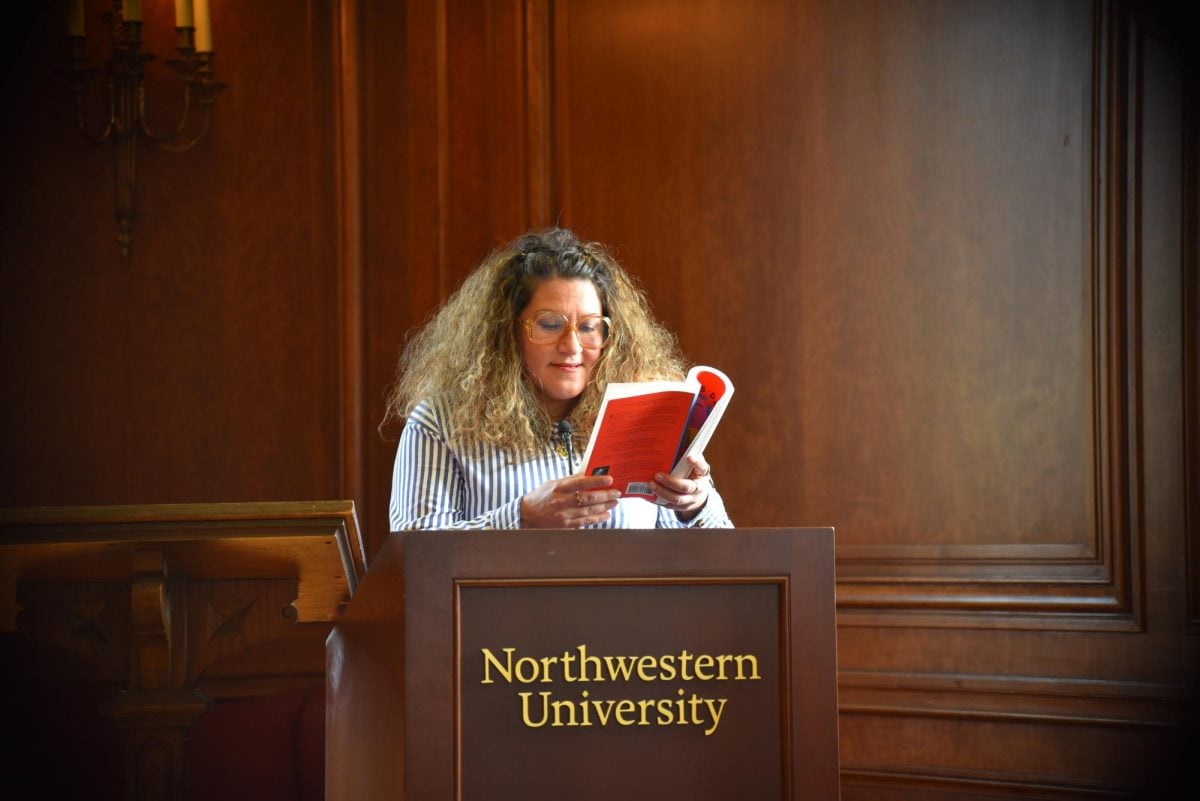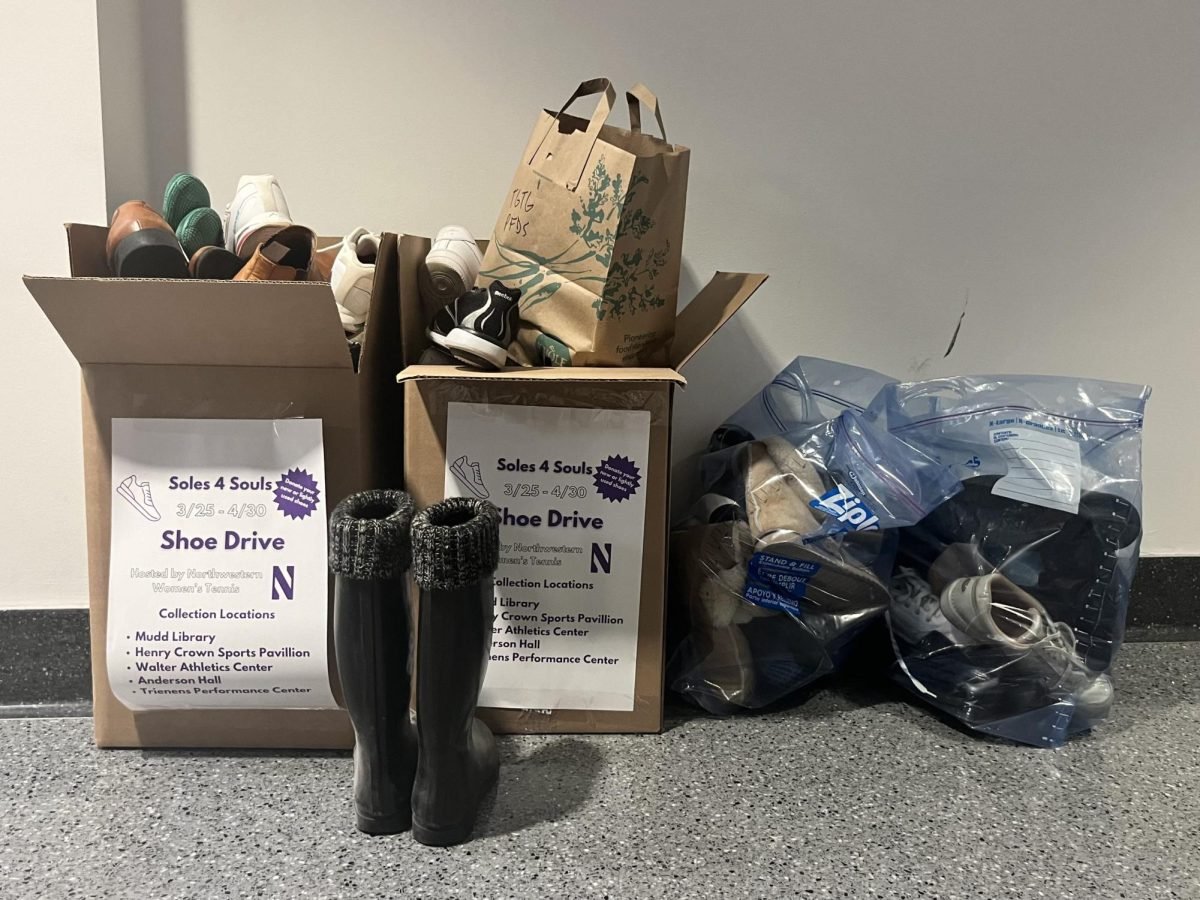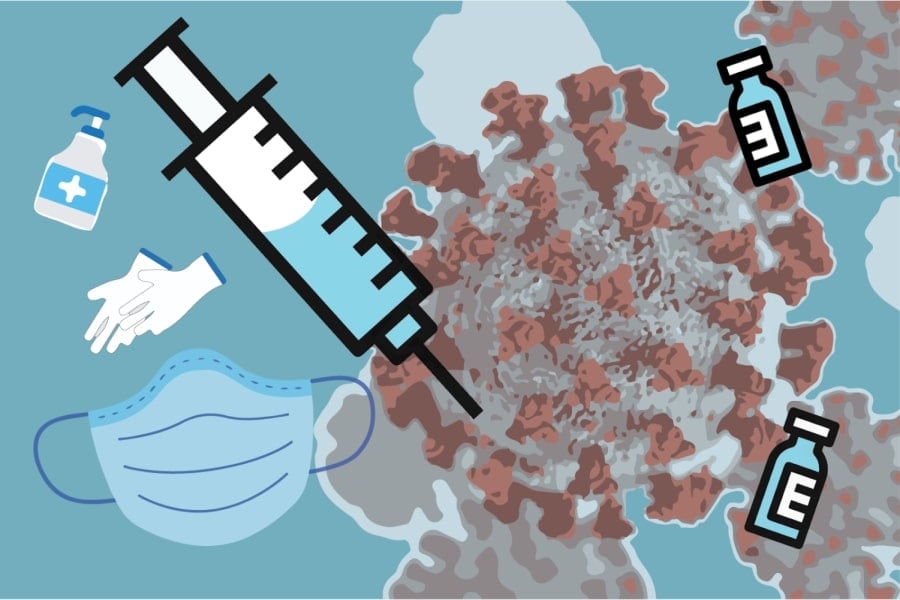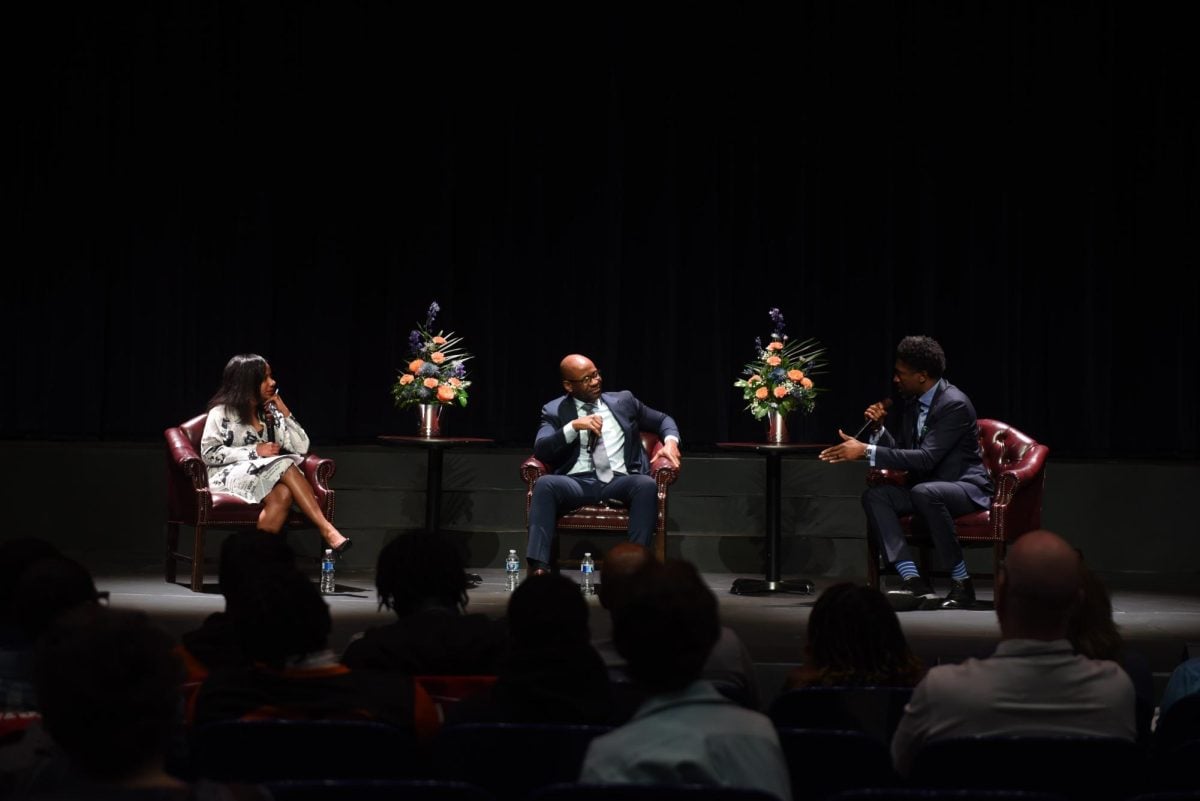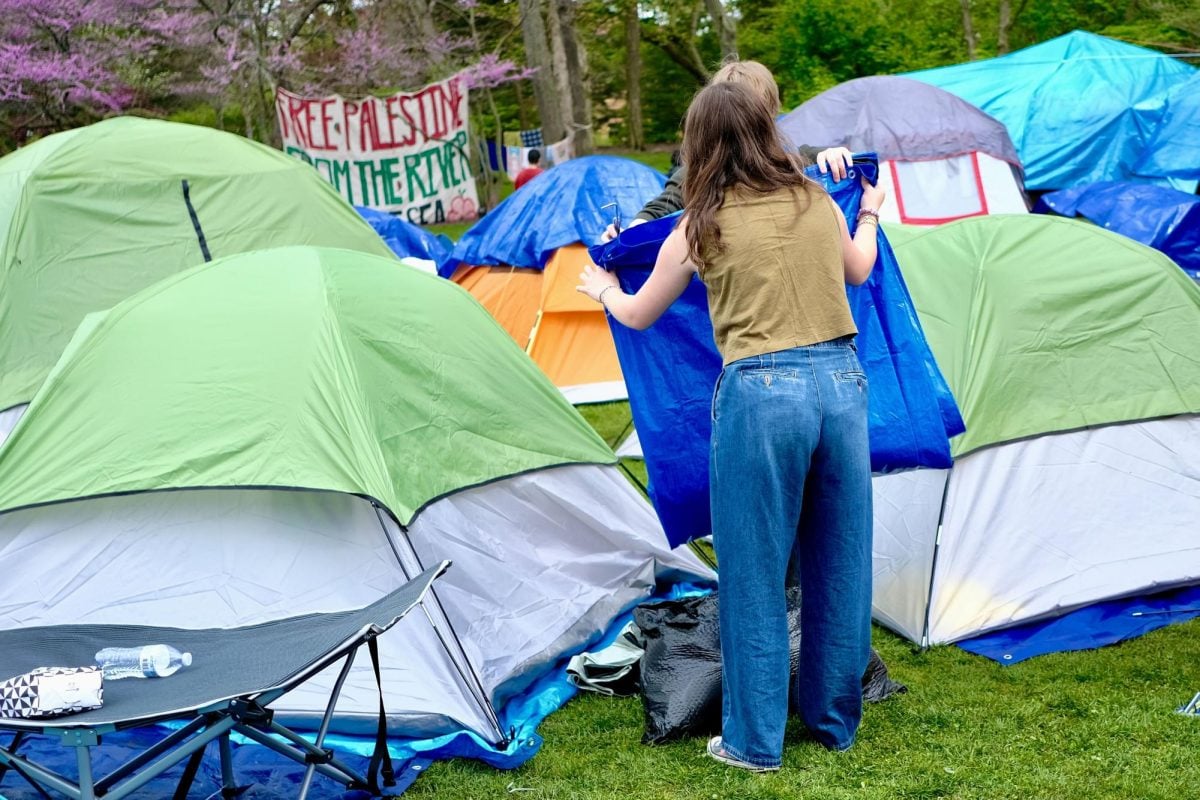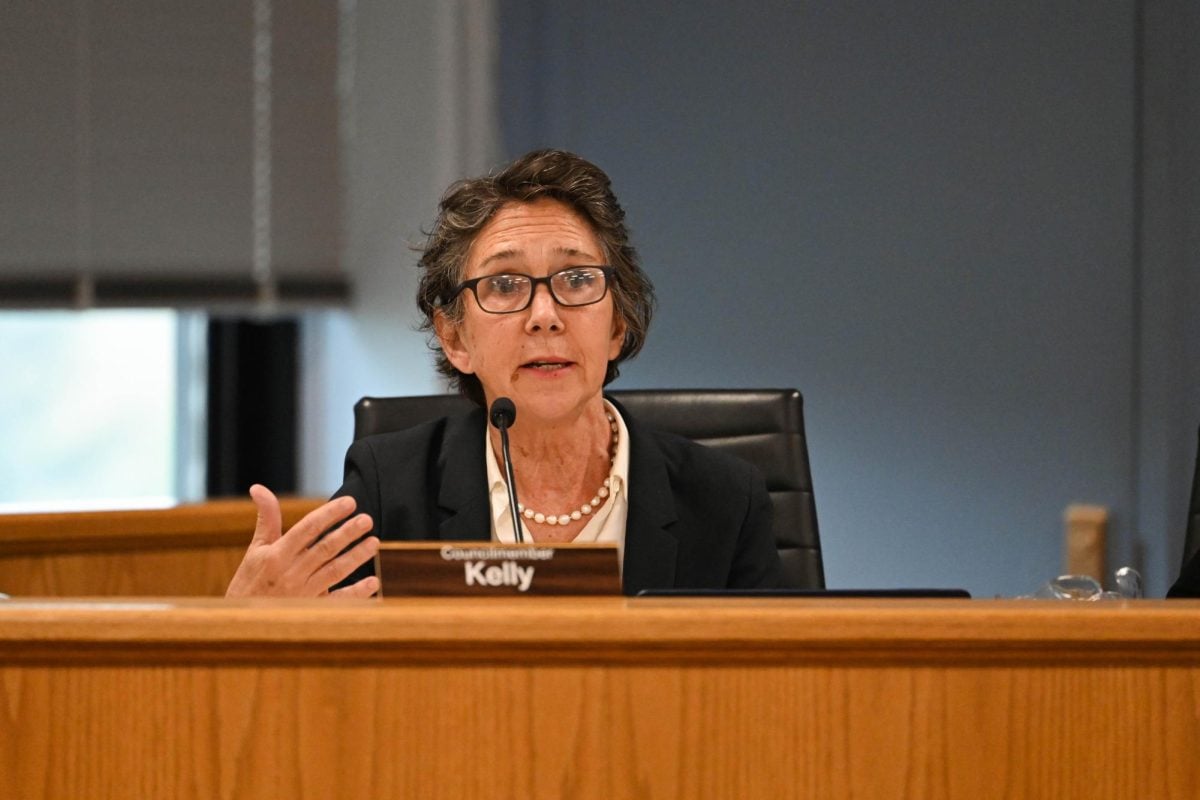Northwestern’s Institute for Sexual and Gender Minority Health and Wellbeing hosted Shantel Gabrieal Buggs and Trevor Hoppe, editors of the book “Unsafe Words: Queering Consent in the #MeToo Era” Thursday as part of its Current Issues in LGBTQ Health lecture series.
Medill Prof. and institute member Steven Thrasher moderated the discussion, which was hosted in downtown Chicago with a hybrid attendance option. Thrasher introduced the book as a “queer framework” of looking at consent.
Buggs serves as an assistant professor of sociology and African American studies at Florida State University, while Hoppe is an associate professor of sociology at the University of North Carolina at Greensboro. The pair co-edited “Unsafe Words,” a collection of 13 essays released in February that discuss queer perspectives on consent, sexual ethics and sexual violence.
Buggs said the book centers around “deconstructing how queer sex and queer consent differ from and do not fold into heteronormative frameworks.” She discussed the idea of structural or institutional power in a dynamic between two people, especially when race, ethnicity, sexuality and other identities are taken into account.
“We don’t deal with policing just from actual police forces, we often police each other,” Buggs said.
In her essay “Rejecting the (Black Fat) Body as Invitation,” Buggs discussed her vulnerability in places like nightclubs where people with her physical attributes — which she describes as “curvy, long hair, big ass”— are often sexually violated, and their bodies are viewed as “available for consumption.”
Buggs said she has felt guilty for rejecting such advances, emphasizing to the audience the importance of fighting the tendencies to “police ourselves.”
Meanwhile, Hoppe focused on the essays that discuss the multifaceted sexual experiences that queer people have, contending that “straight rules don’t apply.”
He described queer consent as a “set of norms and practices that operates on the community level.” Hoppe said the concept of an “enthusiastic yes” is foreign to him because practicing safe sex has looked different for him as a young, gay man.
“Our bodies and minds are sometimes in conflict. Sometimes I say yes, but my body says no … Sometimes I say no, but my no can be overridden, and I accept that,” Hoppe said, quoting Alexander Cheves’ essay in the book.
Hoppe then highlighted how queer consent allows people the flexibility to push past boundaries, thus transcending the rules of heteronormative sex that are often placed on them.
With essays in the book like “Sex Workers are Experts on Sexual Consent,” “Was I a Teenage Sexual Predator?” and “Black Femmedom as Violence and Resistance,” Buggs said she hopes readers become “open to a world where we can seriously discuss what is pleasurable and what is harmful.”
Clarification: This article has been updated to reflect that Hoppe’s quote about bodies and minds in conflict is from Alexander Cheves’ essay in the book “Unsafe Words.”
Email: [email protected]
Related Stories:
— Student Body TND returns to full theater production after criticism
— A guide to sexual health resources at Northwestern
— Gender and Sexuality Studies Program works to expand diversity efforts amid student critiques

